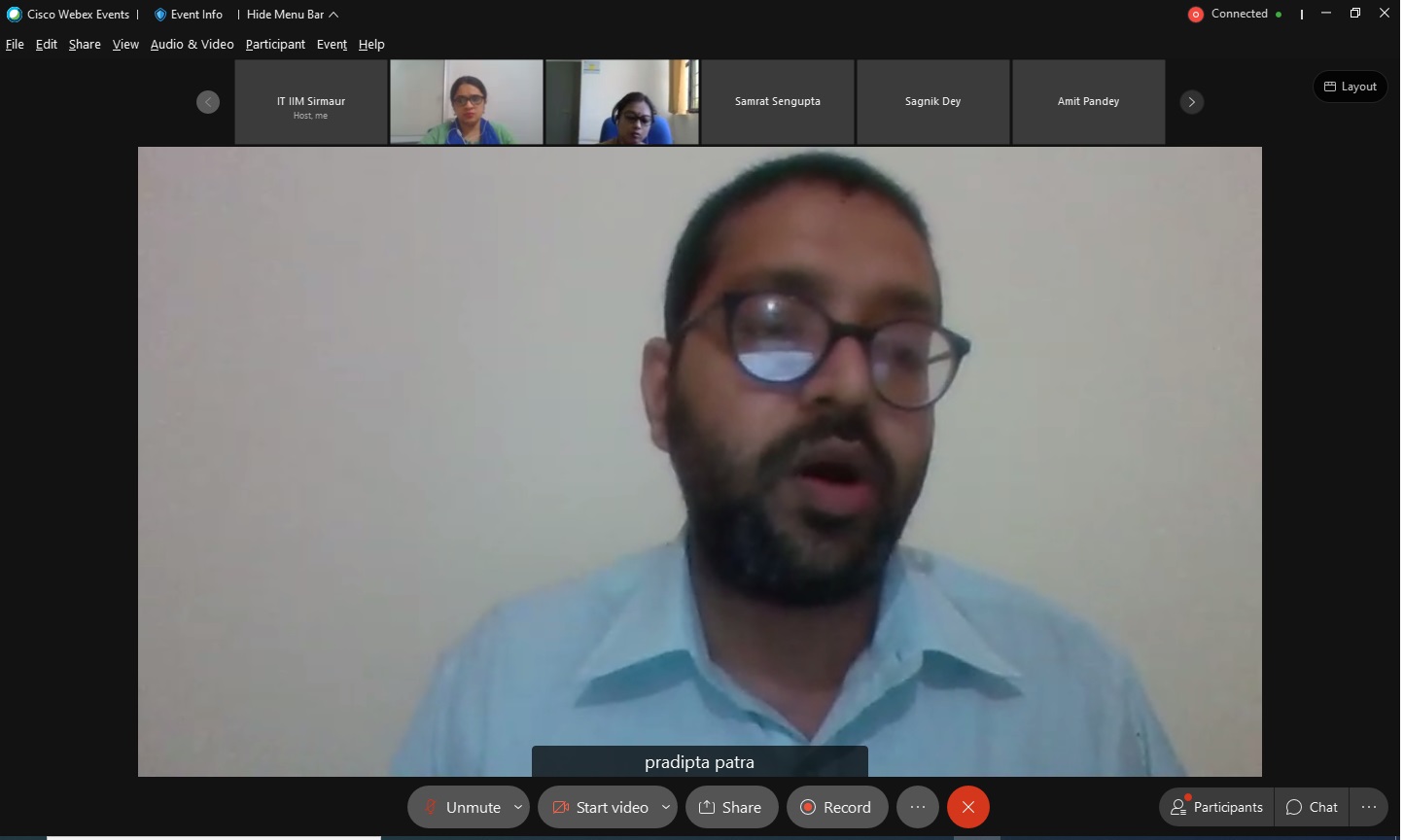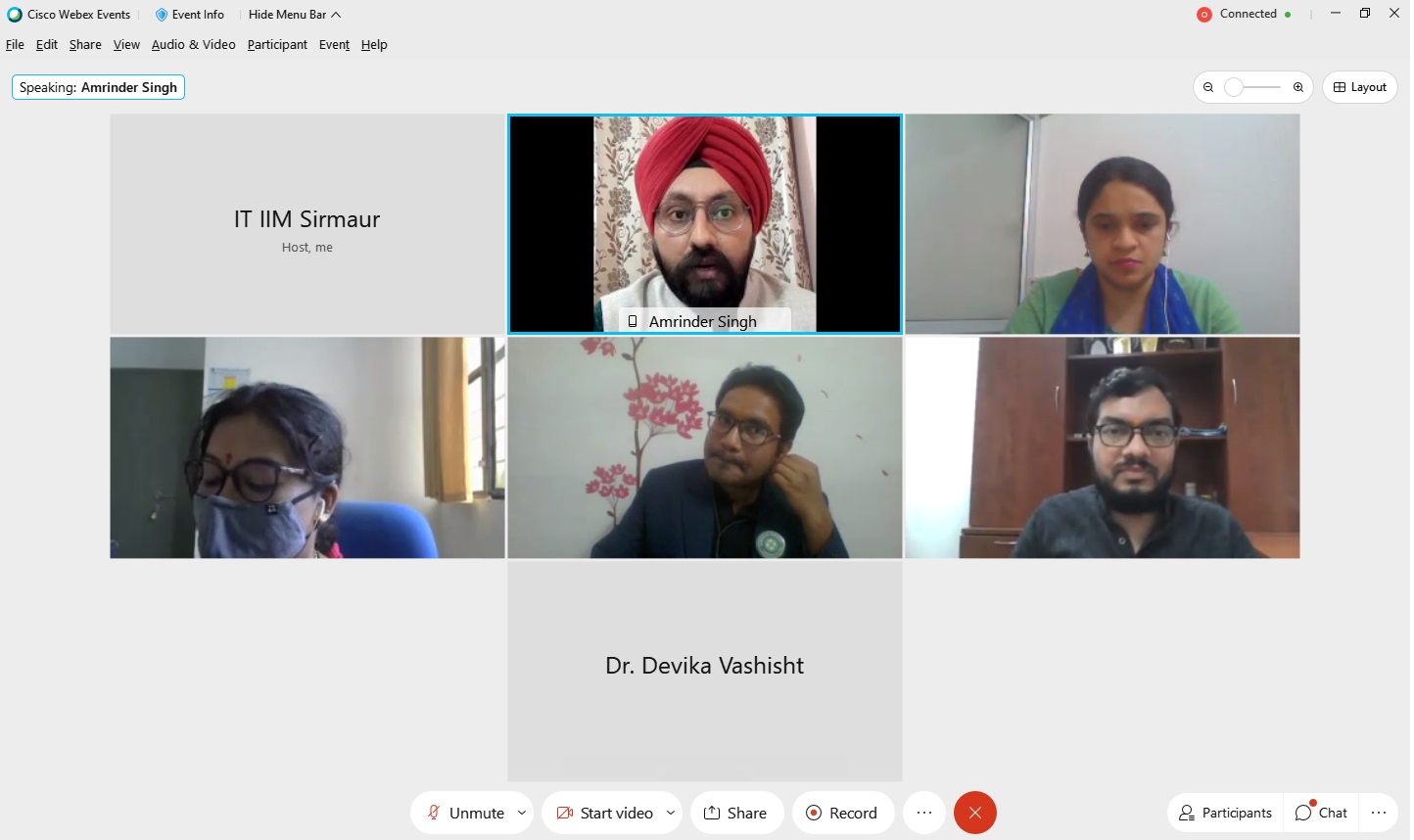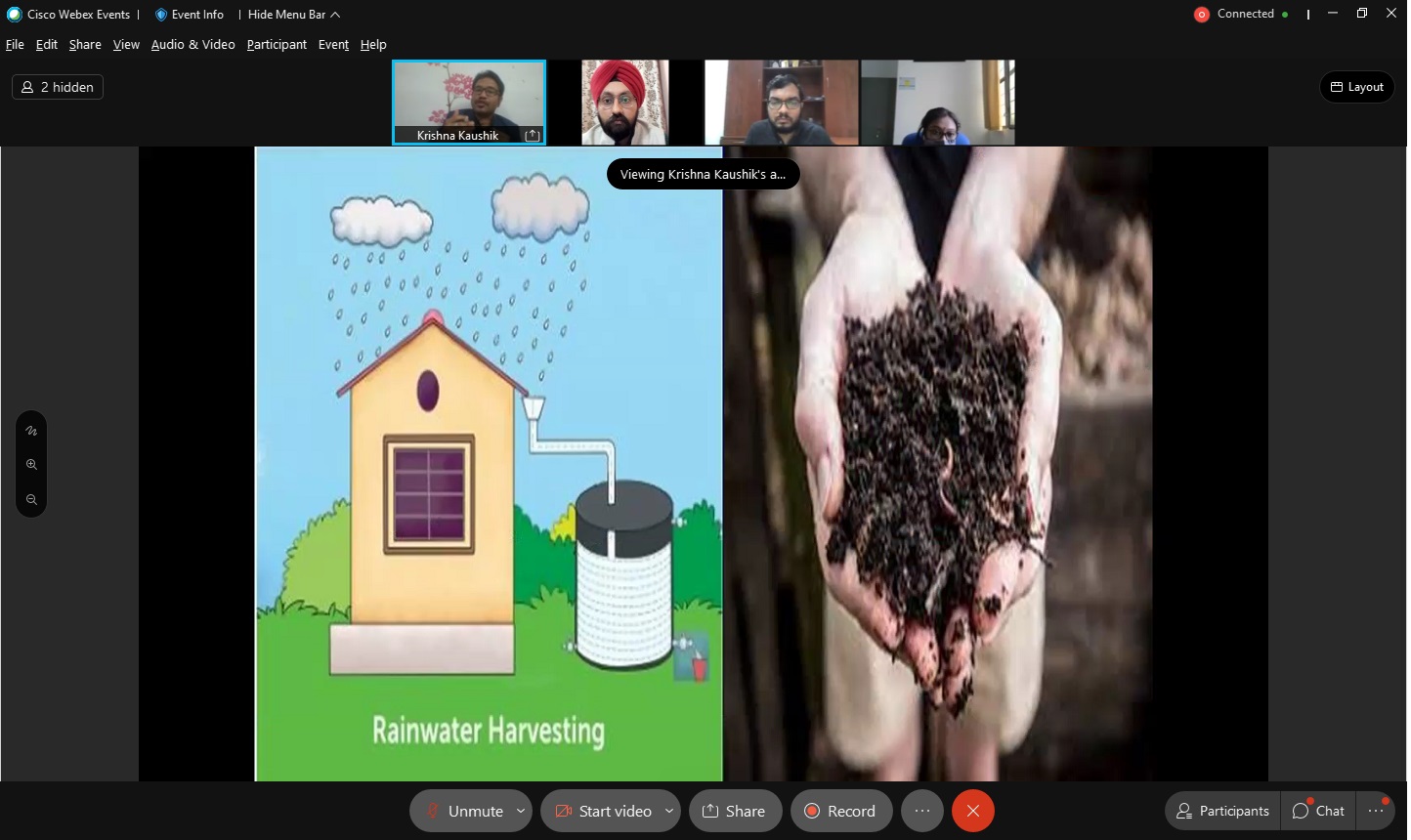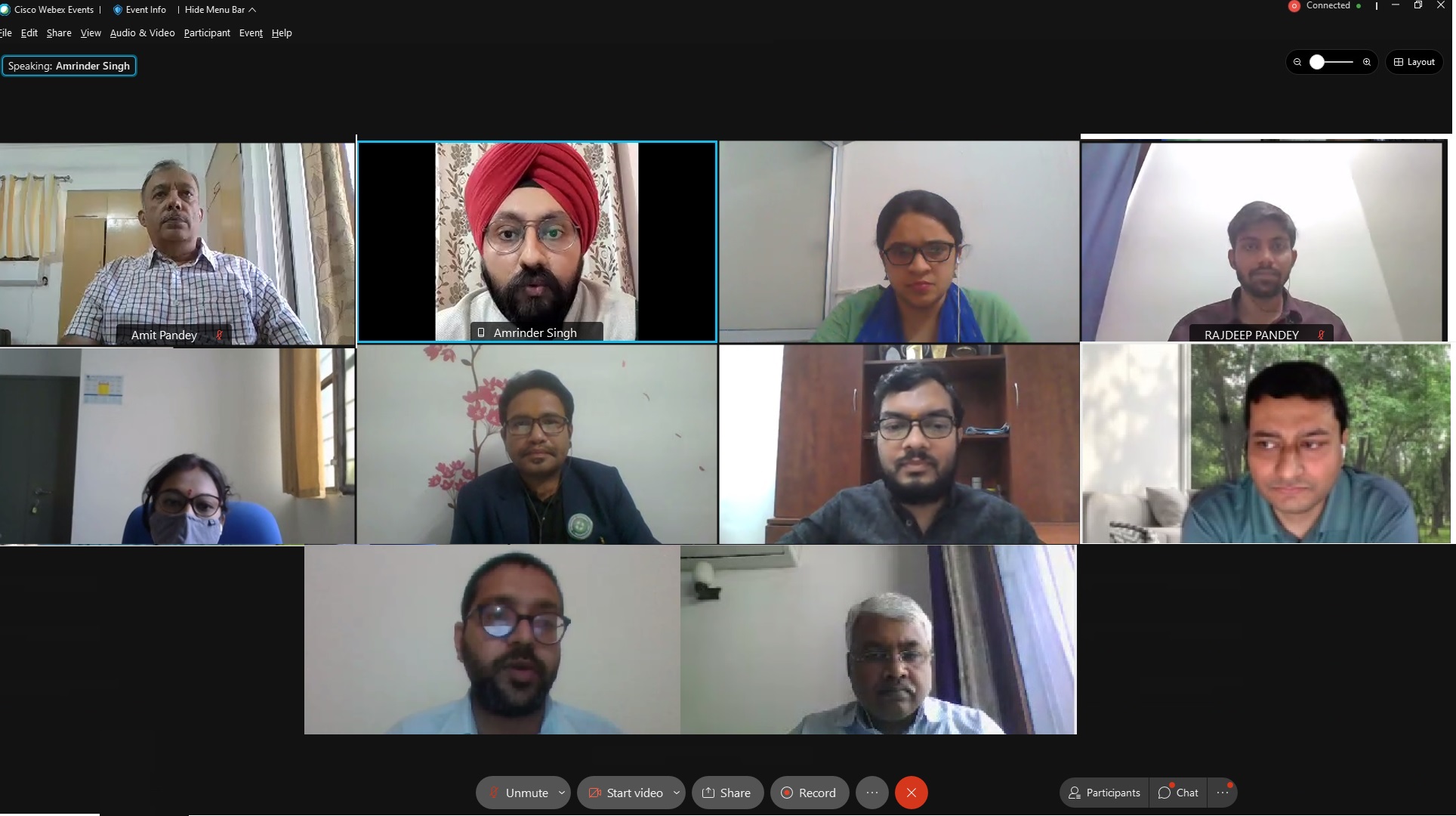IIM SIRMAUR CELEBRATED EARTH DAY BY CONDUCTING A DAY LONG NATIONAL SEMINAR RESTORE OUR EARTH
Centre for Sustainability and Environmental Management, IIM Sirmaur has conducted an online daylong seminar titled Restore Our Earth to commemorate Earth Day i.e., 22nd April. The CSEM was established in the year 2019 as initiative of Prof (Dr) Neelu Rohmetra, Director IIM Sirmaur. The objective behind establishment of the Centre is to promote active research in the field of environment sustainability and steer institute's efforts in the similar direction in effective and systematic manner. The seminar was attended by around 92 participants from across the country. Dr. Arpita Ghosh (convener of the National Seminar & CSEM coordinator) delivered the welcome address and the opening remarks shedding light on the themes of panel discussion for the seminar. She also informed about the villages adopted by the institute under the UBA for catering to the socio-economic concerns of the society and creating an enabling environment. The institute believes that management education is not just about seeking the most competitive employment opportunities, but also about learning to serve socio-economic concerns through ethical and visionary corporate leadership.
Dr. Pradipta Patra addressed the online gathering in the inaugural session. Prof Patra highlighted the sustainability aspects being taken into consideration while construction of the new IIM Sirmaur permanent campus and the institute is continuously taking initiative on waste management, sustainability, women entrepreneurship, and outreach activities for developing the community.
The first keynote speaker for Panel Discussion on Air Pollution and Climate Change was Prof Sagnik Dey, Centre for Atmospheric Sciences, Indian Institute of Technology Delhi who shed light on air pollution mitigation for Sustainable Development in a warming climate in India. He stressed upon the twin environmental problems of Climate Change and Air pollution which India currently is facing. He also highlighted the fact that without mitigating Air Pollution, Sustainable Development Goals can’t be achieved. He emphasized air pollution is a regional and year-round problem. For controlling and checking air pollution, emission at sources be checked and gradual shift towards clean energy. Accountability and Inclusiveness is required among the policies to mitigate the impact of Air pollution.
The subsequent speaker Mr. Samrat Sengupta, Program Director, Climate Change and Renewable Energy, CSE drew attention towards developed countries who are the leading contributors of green house gas emissions. He called out developed countries for derailing and denial of existential crisis of Climate change. The climate agreements should be legally binding as well as based on equity and to fulfil climate goals developing countries should pressure developed countries for technology transfer and financial aid.
Dr. Amrinder Singh gave the background for the next panel discussion on Clean energy production. Dr. Sumit Tiwari, Assistant Professor, Mechanical Engineering, Shiv Nadar University spoke about Solar Energy, the hope for the future. He termed Sun as the ultimate source of all energies. He stressed on the fact that solar energy alone can power the world energy use if tapped efficiently. He discussed about the technological upgradations and research carried out in photovoltaics to make it competitive to the fossil fuel-based energy generation. He highlighted the economics and environ-economics of Solar energy for the long run making it more preferred choice.
Er. Krishna M Kaushik, Founder and CEO, Hiresun Energy Pvt. Ltd. Continued the session with focusing on putting forward the case of Solar Energy for Sustainability. He opined that when electrical energy per capita consumption increases the illiteracy rate decreases and the development rate increases. He cautioned that we have only one planet in which life is possible so we have to sensible and adopt sustainable ways of living. Heat waves, wildfires, glaciers melting, sea level rise, biodiversity impact all are resulting because of accumulation of greenhouse gases in the atmosphere. For Sustainability, consumption should be equal to generation. He claimed to meet India’s renewable energy targets Energy sustainability has to be achieved by following the principle of Avoid, Minimize and Generate.
Dr. Devika Vashisht (co- convener of the National Seminar) set forth the background for the last panel discussion on Soil Science and Forestry.
Dr. Amit Pandey, Head & Scientist – G, Forest Protection Division, Forest Research Institute, Dehradun explained about the complex forest ecosystems and the emerging pathological problems and their management. He made the participants aware regarding Fungi being the major disease-causing organism for the forest ecosystem. He shared several case studies of Sal, Shisham and Oak mortality witnessed in several parts of the country due to site specific reasons. He also apprised the participants about disease management strategy for protection of forests. Due to climate change also new forest diseases are coming in the Indian forest which is a cause of concern.
The final speaker of the seminar Mr. Rajdeep Pandey, CEO, Enviraj Consulting addressed the issue of land degradation in India. In present times he mentioned decline in productivity and biodiversity loss is being witnessed all around the globe. Increasing population, Urbanization, over grazing, deforestation, over cultivation are some of the reasons for continued land degradation. Excess land degradation can lead to food insecurity, climate change, water insecurity, air pollution and economic losses. To prevent land degradation afforestation, sustainable agriculture practices and technological interventions need to be adopted on a larger scale.
In the last, the Vote of thanks was delivered by the organizers to the honorable Director for her kind support, eminent speakers for their valuable time, participants, Administrative staffs, faculties, IT team, centre’s RAs, etc.




